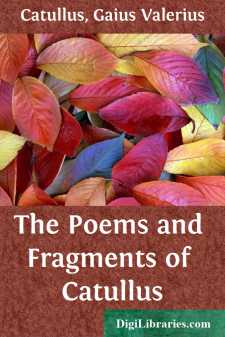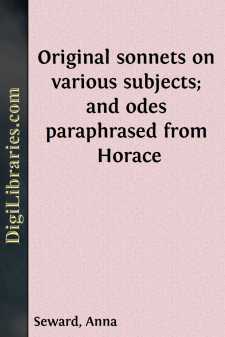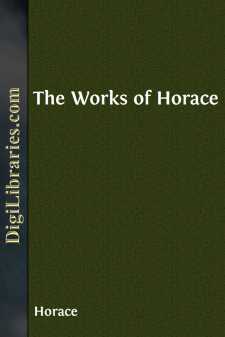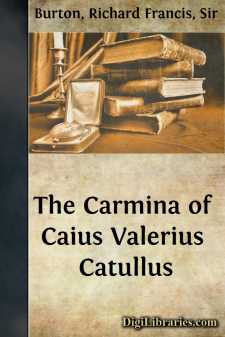Poetry
- American 96
- Ancient, Classical & Medieval 41
- Asian 15
- Australian & Oceanian 11
- Canadian 11
- Caribbean & Latin American
- Children's Poetry & Nursery rhymes 51
- Continental European 11
- English, Irish, Scottish, Welsh 162
- General 483
- Inspirational & Religious 7
- Middle Eastern 3
Caribbean & Latin American Books
Sort by:
PREFACE. The idea of translating Catullus in the original metres adopted by the poet himself was suggested to me many years ago by the admirable, though, in England, insufficiently known, version of Theodor Heyse (Berlin, 1855). My first attempts were modelled upon him, and were so unsuccessful that I dropt the idea for some time altogether. In 1868, the year following the publication of my larger...
more...
by:
Virgil
GEORGIC I What makes the cornfield smile; beneath what starMaecenas, it is meet to turn the sodOr marry elm with vine; how tend the steer;What pains for cattle-keeping, or what proofOf patient trial serves for thrifty bees;-Such are my themes.O universal lightsMost glorious! ye that lead the gliding yearAlong the sky, Liber and Ceres mild,If by your bounty holpen earth once changedChaonian acorn for...
more...
by:
Anna Seward
PREFACE. Whatever other excellence may be wanting in the ensuing Poems, they are, with only nine exceptions out of the hundred, strictly Sonnets. Those nine vary only from the rules of the legitimate Sonnet in that they rhime three, instead of four times in the first part. The pause is in them, as in the rest, variously placed through the course of the verses; and thus they bear no more resemblance...
more...
by:
Horace
THE FIRST BOOK OF THE ODES OF HORACE. ODE I. TO MAECENAS. Maecenas, descended from royal ancestors, O both my protection and my darling honor! There are those whom it delights to have collected Olympic dust in the chariot race; and [whom] the goal nicely avoided by the glowing wheels, and the noble palm, exalts, lords of the earth, to the gods. This man, if a crowd of the capricious Quirites strive to...
more...
Dear Mr. Smithers, By every right I ought to choose you to edit and bring out Sir Richard Burton's translation of Catullus, because you collaborated with him on this work by a correspondence of many months before he died. If I have hesitated so long as to its production, it was because his notes, which are mostly like pencilled cobwebs, strewn all over his Latin edition, were headed, "NEVER...
more...






